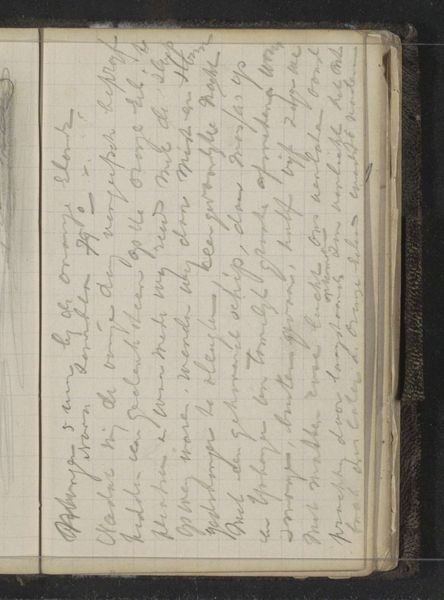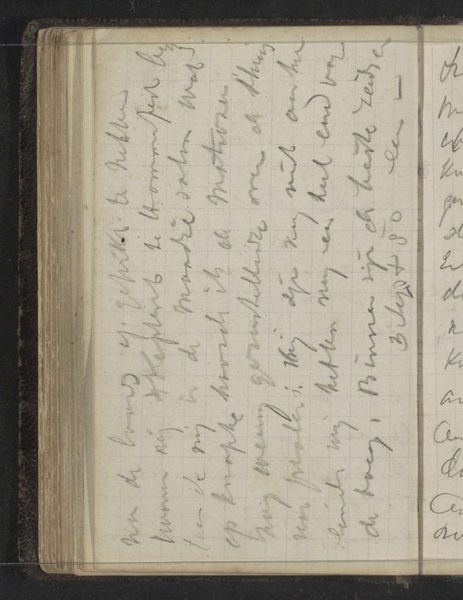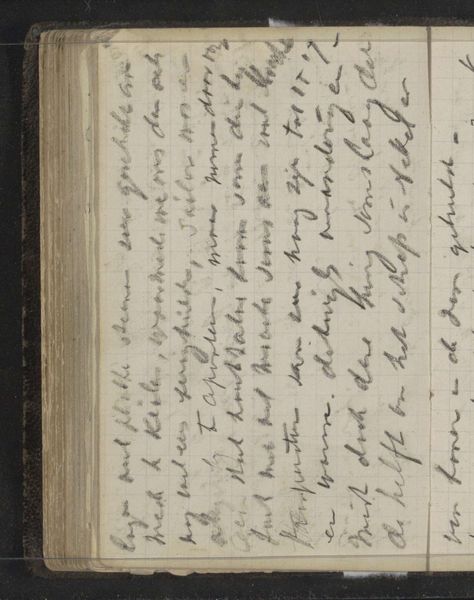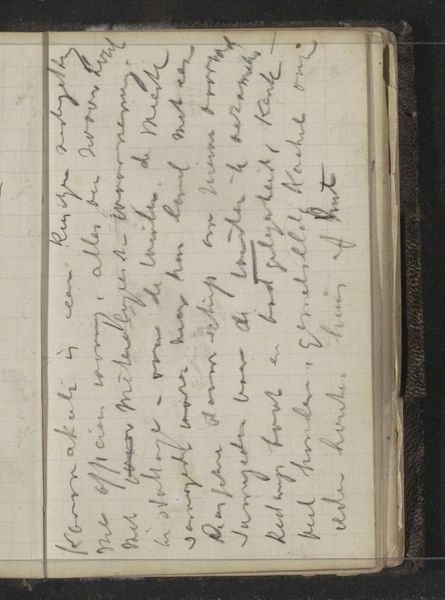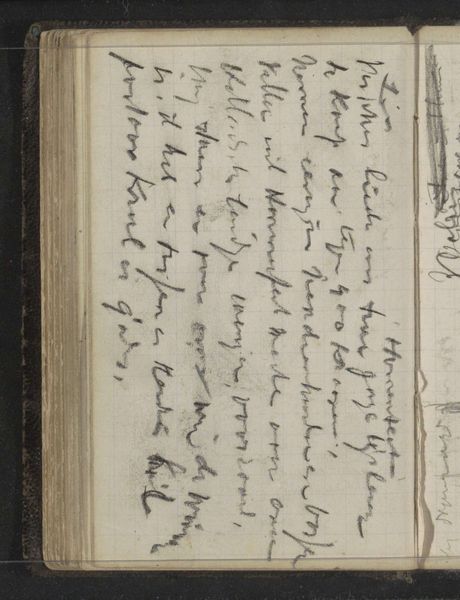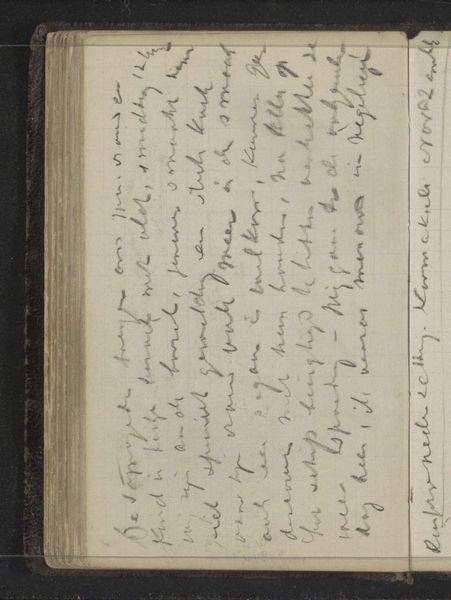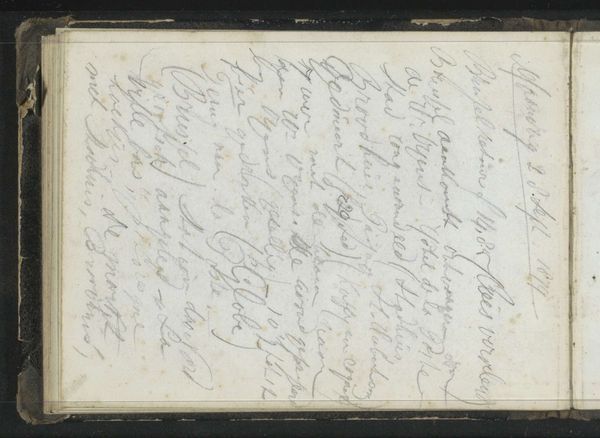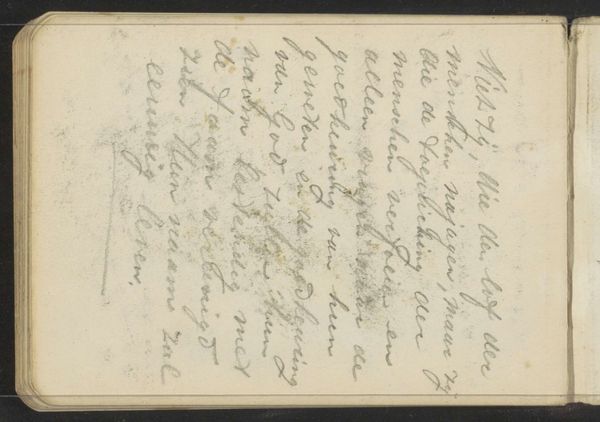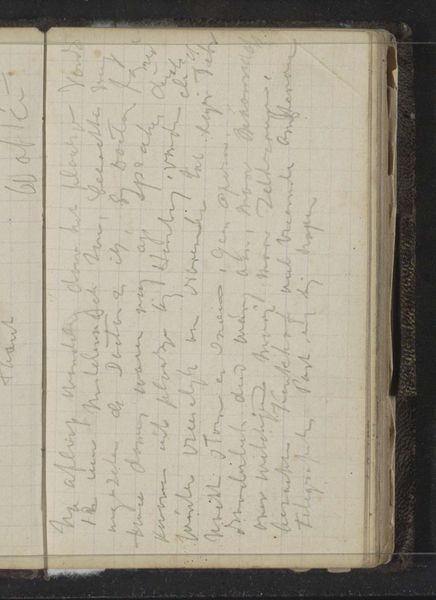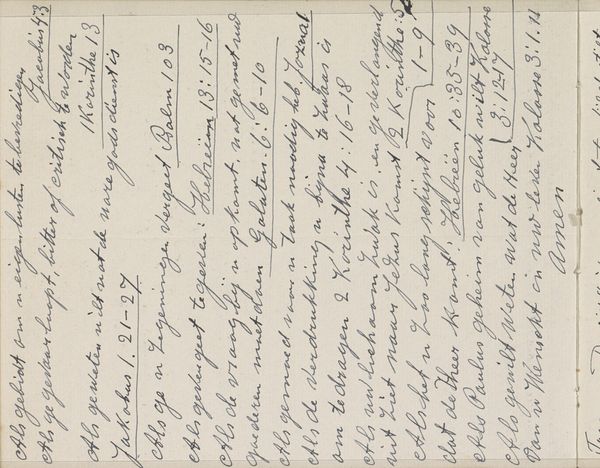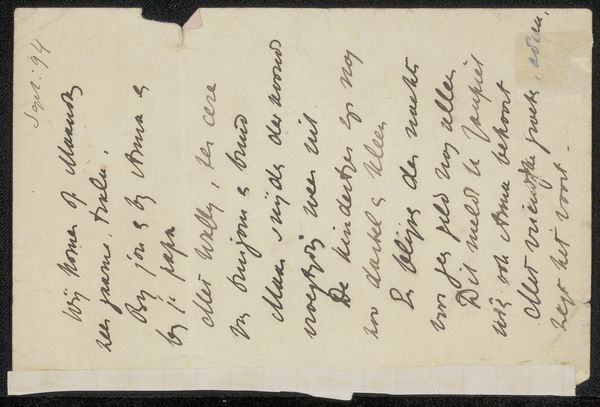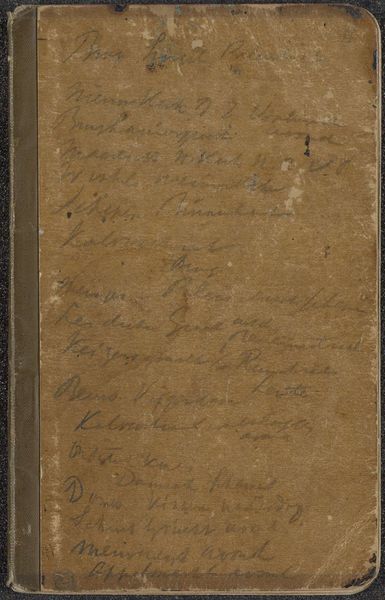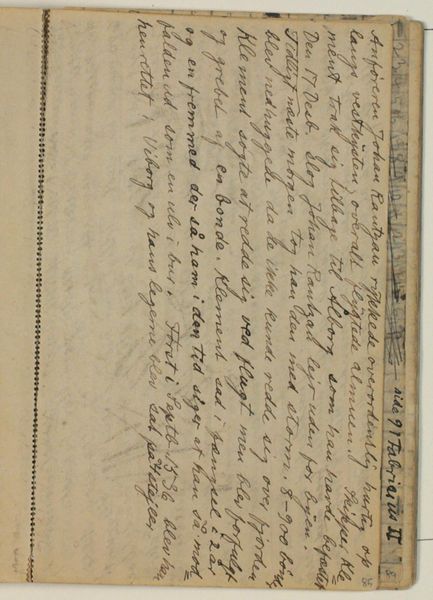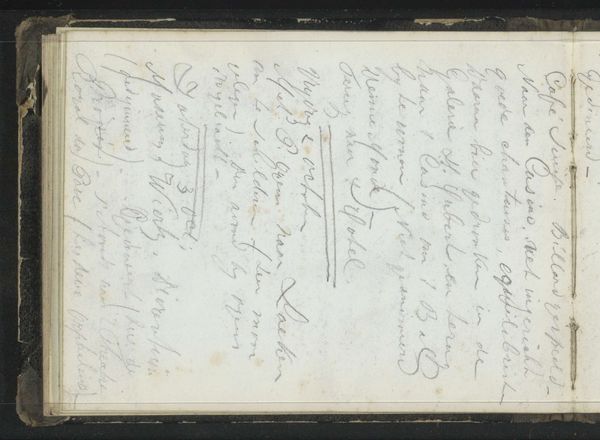
drawing, paper, ink
#
portrait
#
drawing
#
aged paper
#
toned paper
#
homemade paper
#
narrative-art
#
dutch-golden-age
#
hand drawn type
#
paper
#
personal sketchbook
#
ink
#
sketchbook drawing
#
watercolour bleed
#
sketchbook art
Copyright: Rijks Museum: Open Domain
Curator: Here we have Louis Apol's "Reisverslag," dating from the 1880s. It is a drawing executed in ink on paper and held at the Rijksmuseum. Editor: My initial impression is of intimacy, of glimpsing something deeply personal. The aged, toned paper has an almost fragile quality. The density of script commands focus. Curator: It feels like a page torn from a private sketchbook. Notice the aged quality, enhanced by the discoloration, a certain water color bleed around the ink strokes, and the type of paper he's chosen. It reads almost as if he handmade this paper to house the writing on it. Editor: Precisely! And the handwriting itself is so characteristic of its era. Think of how handwriting was seen, it conveyed much more personality than modern fonts that attempt to erase the humanness from the design. How does the sketchbook as object alter our viewing? Curator: I believe the scale and medium add greatly to that effect. It becomes not just about what's written, or the depicted scenery but about the journey itself, both physical and intellectual, to be perceived intimately through what remains on the paper. This lends a uniquely reflective quality, allowing us to feel closely involved with Apol's thought process as an artist during that time. Editor: Viewing a historical sketchbook always creates a curious juxtaposition for me. We're invited into an artist's personal space and way of perceiving things in their own intimate experience of place and space. These are their jottings, for no other audience. What can you share on its sociopolitical or historical contexts, however? Curator: It’s a snapshot into late 19th-century artistic travel. Artists began capturing immediate impressions with quick, informal sketches on the road. A counterpoint to the formal academic art training dominating then. It speaks to evolving artistic expression rooted within a context of travel literature becoming popular, shaping expectations as many sought personal enrichment outside their traditional lives within rapidly expanding social conditions of colonialism across different cultures. Editor: These sketches aren't about replicating reality faithfully; rather, they provide evidence about Apol himself. They say much about him, given what he chooses to include or exclude from what lies ahead - he's not merely passively reflecting, so let the content of the text itself reveal aspects. Curator: Seeing it from both aesthetic and contextual perspectives, it opens doors into that crucial intersection of artistic intention within culture's sweeping forces through this singular lens... the sketchbook pages from artists like Apol truly underscore the potential art to record journeys in ways words simply cannot!
Comments
No comments
Be the first to comment and join the conversation on the ultimate creative platform.
